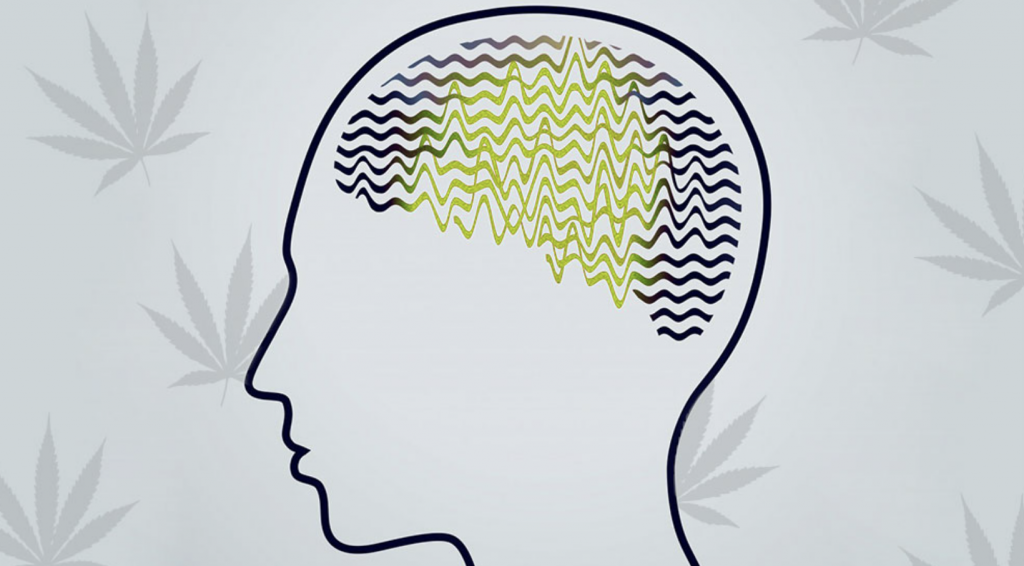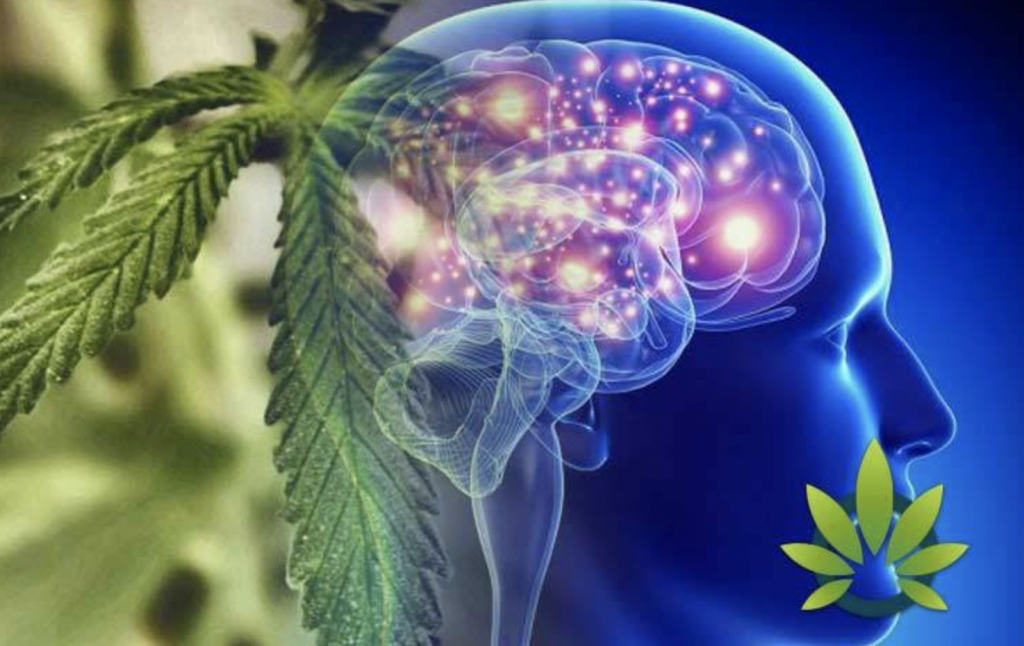
Only your medical professional can adequately assist you in determining whether medical marijuana is right for you. Feel free to meet with a medical professional today at FadeMD to get your medical marijuana card.
The human brain has been designed to function in a well-coordinated pattern and to provide a proper body control and movements. There are some cases where this coordination is totally lost or even distorted leading to an abnormal activity in the brain and loss of coordination and control. This abnormal neurological condition is term Epilepsy.[1]
Epilepsy is a “central nervous system (neurological) disorder in which brain activity becomes abnormal, causing seizures or periods of unusual behaviour, sensations and sometimes loss of awareness.”[1] It is a form of seizure disorder and is confirmed when there are more than two episodes of unprovoked seizures without a concrete medical condition to explain the aetiology.[2]
Epilepsy has remained one of the commonest chronic which can be seen in all ages. There is no specific sex predilection for this condition as it is equally distributed between males and females. It also affects all races regardless of ethnicity or socioeconomic background.
Before we talk about the benefits of medical marijuana and how to get your medical marijuana card online, we want to provide more background on epilepsy. If you already know that you would like to receive your medical marijuana certification online them please visit FadeMD.
What are the different classes of Epilepsy?
For the benefit of clarity, Epilepsy is broadly classified into four major groups which are based on the presentation and point of origin. These include: [1]
- Focal epilepsy – occurs when the seizure is a result of abnormal activities from one particular area or region of the brain. E.g. Focal seizures without loss of consciousness, Focal seizures with impaired awareness
- Generalized epilepsy – the abnormal brain activities in this group are noticed to be originating from several parts of the brain. There are six types of generalized epilepsy which Include: Absence seizures, Tonic seizures, Atonic seizures, Clonic seizures, Myoclonic seizures, Tonic-clonic seizures.
Cause of Epilepsy
About half of the diagnosed cases of epilepsy may be linked to some specific factors which include genetics, damage to the brain, structural changes in the brain, some metabolic conditions, chronic illnesses and abnormalities associated with brain development. [2]
- Genetic factor – most epilepsy have been attributed to a genetic makeup which may run in families. Studies have linked such type of epilepsy to some specific genes in the body which makes the person more predisposed and vulnerable to developing the disease and becoming sensitive to the triggers of seizures. Most cases of epilepsy that are gene-related are [1]
- Brain damage – it has been suggested that various conditions that bring about damage to the brain can lead to epilepsy. Such conditions include:
o Cardiovascular accident
o Trauma to the head from Road Traffic Accidents, blow to the head.
o Birth asphyxia in new-borns
o Brain tumours
- Brain developmental disorders – certain malformations during brain development can predispose one to epilepsy. Brain disorders such as Down’s syndrome, Cerebral palsy, Autism malformations have all been associated with epilepsy. [2]
- Brain Infections – another factor that can cause epilepsy is Brain infections such as Acquired Immunodeficiency Syndrome (AIDS), Meningitis, Viral encephalitis
Other risk factors which are associated with increased risk of epilepsy are Age, Family history, Stroke, Dementia, Seizures in childhood.
Symptoms of Epilepsy
The symptoms of epilepsy have different presentations and may vary according to the type of epilepsy and the aetiological factor. A majority of those with epilepsy experience some common symptoms such as periods of temporary confusion, staring, muscle spasms, uncoordinated or uncontrolled jerky movements of the arms and legs, loss of consciousness, fear or anxiety. Patients often recover spontaneously with each episode lasting less than 5-10 minutes. [1]

Role of Medical cannabis in the treatment of Epilepsy
The use of medical cannabis in the management of seizure disorders has been a subject of debate among health organizations and medical bodies. Although studies are currently ongoing to access the efficacy of medical cannabis in the treatment of several illnesses, there have been some cannabis derivatives that are FDA approved for the treatment of seizures. [3]
What is Cannabis? It is derived from a Latin name used by scientists but it is often known to a layman as Marijuana which means leaves of a cannabis plant. This plant has been shown to have both medicinal properties and recreational properties. The active substance in cannabis is called Cannabinoids which acts on the body receptors to bring about some desired effects.
Among the substances found in cannabis, the two most important ingredients are Tetrahydrocannabinol (THC) and Cannabidiol (CBD). The actions of these two substances differ as THC causes euphoria and “highness” and thus it is considered psychoactive while CBD acts differently to bring about a positive effect in the system. This is the effect that has been associated with seizure and epilepsy control. [3]
In the central nervous system, CBD has been shown to interact with a specific receptor called Transient Receptor Potential Vanilloid (TRPV). When CBD binds to these receptors, it increases the levels of Ca2+ and release of glutamate which are both involved in neuronal excitability.
Another mechanism of action of CBD may be through the interaction of CBD with T-Type Ca2+ which is an ion channel that controls Ca2+ and thus regulates the excitation of neural cells. Other molecular receptors which may interact with CBD to modulate neural activities are serotonin receptors through 5-HT1A and 5-HT 2A subtypes. [4] The agonist actions of CBD on these receptors bring about modulation of neuronal activities and subsequently its antiepileptic effects.
How to get medical marijuana?
Depending on the state you are located in, the first step to getting medical marijuana is getting a medical marijuana recommendation, also called a medical marijuana certification or mmj card. Only a licensed medical practitioner can recommend or certify you for medical marijuana. In some states such as California, all you need to get is a mmj certification to buy medical marijuana. In other states, such as Pennsylvania, Oklahoma, Missouri, New York, and Ohio, you will also have to complete a state application before you receive you mmj card.
To get your medical marijuana card online visit FadeMD and schedule a time to speak with a licensed medical practitioner.5
Takeaway
Patients and caregivers should talk to a licensed medical professional before using cannabis and its derivatives as there may be other adverse effects that may be peculiar to that individual. It is advisable to consult registered medical personnel to guide you and monitor the effects of the drugs with the possible adverse effects which may result.
Patients and caregivers can connect with a licensed medical practitioner on FadeMD and see if a medical marijuana recommendation or mmj card is right for you.
Disclaimer: The information, including but not limited to, text, graphics, images and other material contained in this article are for informational purposes only. No material from this article is intended to be a substitute for professional medical advice, diagnosis, or treatment. Always seek the advice of your physician or other qualified health care provider with any questions you may have regarding a medical condition or treatment before undertaking a new health care regimen. Never disregard professional medical advice or delay in seeking it because of something you have read on this website.
References:
